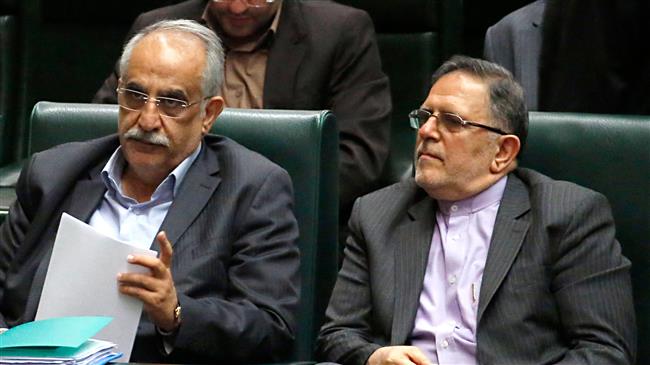US blacklisting of CBI chief meant to derail nuclear deal talks: Tehran


Tehran has strongly condemned Washington for imposing sanctions on the Central Bank of Iran’s chief over a week after the US withdrawal from the 2015 nuclear deal, saying such moves are meant to derail the ongoing negotiations to save the now six-party agreement.
The US Treasury Department named Valiollah Seif and another senior official in Iran’s Central Bank as “specially designated global terrorists” for allegedly assisting Iran’s Islamic Revolution Guards Corps (IRGC).
Treasury Secretary Steven Mnuchin accused Seif of covertly funneling money on behalf of the IRGC’s Quds Force through Iraq-based Al Bilad Islamic Bank to support Lebanon’s Hezbollah resistance movement.
The new bans have drawn a strong condemnation from the Iranian Foreign Ministry, with its spokesman Bahram Qassemi describing them as “the continuation of the US government’s inappropriate behavior and hostile policies, which have targeted the Iranian nation over the past decades in various forms.”
The US imposes sanctions against the governor of Iran’s Central Bank and a number of other entities and individuals.
“These hostile policies have failed and will fail to bring any achievement for the US, and will rather make the Iranian nation and government more determined, patient and resilient than ever in their efforts to counter America’s anti-Iran measures,” he added.
The blacklisting of Seif, which coincided with the start of negotiations among the remaining parties to the Iran deal, reveals Washington’s failure to achieve its “pre-planned objectives” against the Islamic Republic.
Through its destructive measures, the US government is now making attempts to negatively affect a decision by Tehran and its five other partners – France, Britain, Germany, Russia and China – on the future of the nuclear deal without the United States.
The latest anti-Iran sanctions follow President Donald Trump’s announcement on May 8 of the US withdrawal from the Joint Comprehensive Plan of Action (JCPOA), better known as the Iran deal. Trump also vowed to reinstate US nuclear sanctions on Iran and impose “the highest level” of economic bans on the Islamic Republic.
Days later, the US Treasury sanctioned six Iranian individuals and three entities for allegedly operating a currency exchange network that transferred millions of US dollars to the IRGC’s Quds Force.
All the remaining signatories censured Washington’s pullout, saying they would stay committed to the landmark accord and work to find ways to keep the deal in place.
Foreign Minister Mohammad Javad Zarif hails talks between Iran and the EU over salvaging the nuclear deal as a “good start.”
Soon afterwards, Iranian Foreign Minister Mohammad Javad Zarif kicked off a diplomatic tour of Beijing, Moscow and Brussels for talks on ways to protect the deal and see if Iran’s interests could be protected with the US gone.
Tehran has said it would make a decision on its future role in the JCPOA in the coming weeks following negotiations with the other sides.
In Brussels, Zarif said Wednesday that the Iran-EU talks on the JCPOA had kicked off to a “good start.”
“All agreed that much remains to be done in coming weeks to practically guarantee economic benefits for Iranian people,” tweeted Zarif
The EU’s foreign policy chief Federica Mogherini also reiterated the bloc’s determination to keep the deal in place, adding that the remaining parties had agreed to find practical solutions in the weeks to come, including continuing to sell Iran’s oil and gas products, maintaining effective banking transactions and protecting European investments in the Iranian market.









